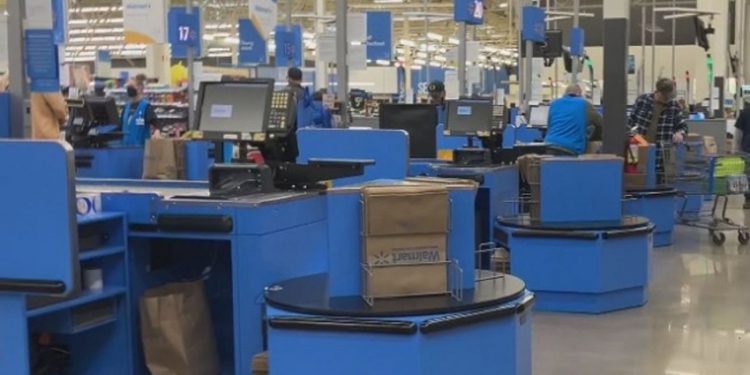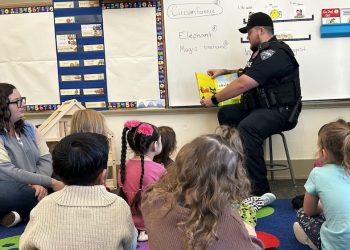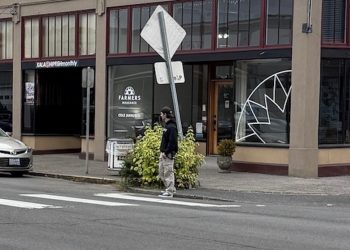EUGENE, Ore. — Organized retail theft continues to pose a significant financial burden, costing businesses nationwide over $100 billion annually. However, in Lane County, local police departments are making strides in combating this growing issue, thanks to targeted efforts and grant funding.
The Springfield Police Department (SPD) has reported substantial success in its mission to address retail theft. Over the past year, SPD’s specialized operations have led to the arrest of 295 individuals involved in shoplifting, with an additional six apprehended through joint missions with the Lane County Sheriff’s Office. These operations focus on tackling organized retail theft, where stolen goods are resold for criminal gain rather than being taken for personal use.
Lieutenant Justin Myers of SPD explained that the key difference between random theft and organized theft is the intent behind the crime. “The definition of that organized piece of it, where it wasn’t just somebody going into a store and shoplifting, it was theft for gains for criminal activity,” Myers said.
Local and national retailers have become frequent targets for criminal groups, with items ranging from grocery goods to clothing being stolen for resale. Eugene Police Department (EPD) Captain Jacob Burke highlighted the prevalence of this trend. “Both local and major retailers are being targeted by groups that are coming in to steal specific items for resale,” he said.
In a notable case last July, SPD’s Crime Reduction Unit orchestrated a massive bust, recovering thousands of sets of Legos worth hundreds of thousands of dollars. The stolen Legos had been taken from major retailers like Target and Fred Meyer, intended for resale to “brick builders,” according to SPD.
EPD also has specialized units dedicated to addressing these crimes, often working alongside local retailers and other law enforcement agencies. These units conduct regular meetings to share information, provide training, and plan coordinated operations. However, as Captain Burke noted, these efforts come with a financial cost. “All of that comes at an added cost, and all of that, it needs to be supported somehow,” he said.
To support these ongoing efforts, both EPD and SPD received significant funding last year through the Oregon Criminal Justice Commission’s 2023-2025 Organized Retail Theft Grant Program. This funding has been crucial in helping the departments tackle organized crime rings, leading to the arrest of hundreds of individuals and the recovery of stolen property.
Despite these successes, local law enforcement agencies acknowledge the need for more resources to maintain momentum. Recently, EPD has been focusing on a case involving the theft of $5,000 worth of boots from Coastal Farm and Home Supply. While progress has been made, SPD Lieutenant Myers emphasized that additional support is necessary to effectively tackle the issue. He pointed to the potential use of technology, such as license plate readers and drones, to help track offenders and prevent theft. “All the technology in the world doesn’t replace boots on the ground,” Myers said, advocating for the hiring of additional officers or the allocation of overtime funds to expand staff.
On the state level, the Oregon Department of Justice (ODOJ) has also been pushing for further federal support. Oregon Attorney General Dan Rayfield has been advocating for additional resources from Congress, emphasizing the need for greater investigative support to combat organized retail theft across the state. “It’s bigger than any one community, so we’re seeking again, a little bit more resources in this legislative session to add on investigatory resources in different areas of the state to better combat this,” Rayfield stated. “Because it isn’t a victimless crime. All of us are facing this whether it’s the prices we pay or the accessibility of products in our communities.”
In fact, the ODOJ has played a key role in helping 12 counties recover over $640,000 worth of stolen property, including goods taken from cities like Springfield. Despite a reduction in the number of thefts, SPD continues to call for additional support, particularly in the form of technology and staffing, to continue the fight against organized retail crime.
Both SPD and EPD stress the importance of community involvement in solving these crimes. Local law enforcement agencies encourage residents to report suspicious activity and help identify individuals involved in buying or selling stolen goods. As they continue to dismantle these criminal rings, they rely on the public’s assistance to bring perpetrators to justice.
While significant progress has been made in Lane County, officials agree that combating organized retail theft requires ongoing collaboration, funding, and resources. The fight is far from over, and law enforcement agencies are working hard to














